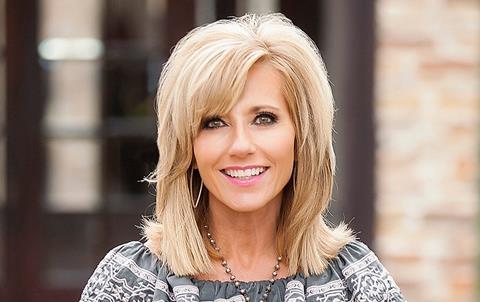The popular American preacher Beth Moore has asked forgiveness for treating complementarianism as “a litmus test”. But Sarah Yardley says Christians should be careful to distinguish between apologising for harmful practices and shifting our theology.

Lately, I have seen many areas of deep theological conviction become battlegrounds of debate, firestorm, and division, like sparks from a long-awaited outdoor BBQ, caught in the wind.
The most recent one to catch the attention of Christians is Beth Moore’s apology for advocating and championing complementarian theology.
Moore tweeted:
Let me be blunt. When you functionally treat complementarianism—a doctrine of MAN—as if it belongs among the matters of 1st importance, yea, as a litmus test for where one stands on inerrancy & authority of Scripture, you are the ones who have misused Scripture. You went too far.
— Beth Moore (@BethMooreLPM) April 7, 2021
A complementarian framework offers the view that God created men and women to be equal in their sense of kingdom identity, in their understanding of grace, and in their ability to contribute to human flourishing. At the same time, as Andrew Bartlett says in Men and Women in Christ, “There is an important distinction to be drawn between equality of worth and sameness of role.” This means men and women are called to different roles in marriage and church leadership.
Many of my friends are surprised to discover that I hold to a complementarian framework for life and ministry. I am a preacher, a writer, a charity leader and a strong communicator. I believe in the radiant freedom and wide-open space of the kingdom of God for men and women. I read widely, think deeply, and celebrate other women in their roles and gifting. Many of my closest friends are female church leaders. I was recently on a call with a key female leader in the United Kingdom, discussing our futures and the way we are learning grace. She made a casual, slightly sarcastic comment about “those complementarians” – and we laughed when I told her I was one of them!
I cheer and celebrate fellow women in leadership roles, and I see this leadership clearly modelled in the biblical examples of Miriam, Deborah, Huldah, Anna, Priscilla, Mary, and many other women. At the same time, for all my reading, studying, prayer, and consideration, I cannot escape the reality of what feels to me clear in scripture: we find freedom in our boundaries.
I agree with Beth on this key point: complementarian theology is not an area of first importance. As Gerry Breshears says, there are doctrines we die for, divide for, debate for, and decide for. For some, this is a secondary (divide for) issue, but at best I find it one that should bring us to areas of healthy debate, active conversation, genuine questioning. For some, this will simply be an area they will decide for, and I find many church leaders have not considered the reality of their frameworks and found ways to clearly champion men and women in leadership in practical ways. If you’d like to start this journey, the wisely written book Developing Female Leaders by Kadi Cole is a fantastic starting point for either theological framework.
There is a difference between apologising for harmful practices, and shifting our theology.
My concern with Beth’s tweet and the question I would raise around it is simply this: There is a difference between apologising for the sins, the harmful practices, and the bitter places of our past and current generations and shifting our theology.
I think the church would do well to find ways to bring hope and healing to those who have felt unwelcome, harmed, or excluded from using their gifts. But Beth’s apology is accompanied by an uncertainty (or unwillingness to comment) on where she has landed theologically, stating: “I’m not going to be pushed into either category right now because that’s not my point.” This is unhelpful at best, because it reiterates one of the ongoing challenges of our 21st century theology firestorms, where we react with emotion to the feelings of a moment instead of using our influence to point to Christ, the servant leader, and to point his followers to a robust, kingdom-centred, biblically anchored view of life and ministry.
One day, when I sit with Beth over a cup of coffee or a delicious Texas BBQ, we will swap stories about the ways we have learned grace in a world that was led by men. We’ll share jokes about the times someone said we belonged in the kitchen, we’ll try to laugh instead of cry at the way we saw church movements split, we’ll lower our voices to a whisper when we gossip the good news of the younger women who walked through the doors that we opened for them. And I hope, with Bibles and hearts wide open, we will find a way to simply say:
Jesus is more beautiful than we ever imagined,
Men and women, complementarian and egalitarian
Wounded, weary, wonderers,
May we behold his love forever.


































